
Code: 02644029
Multicriteria Optimization in Engineering and in the Sciences
by Wolfram Stadler
We are rarely asked to. make decisions based on only one criterion; most often, decisions are based on several usually confticting, criteria. In nature, if the design of a system evolves to some final, optimal state, then it must ... more
- Language:
 English
English - Binding: Paperback
- Number of pages: 406
Publisher: Springer-Verlag New York Inc., 2014
- More about this

177.16 €

Low in stock at our supplier
Shipping in 10 - 14 days
Potřebujete více kusů?Máte-li zájem o více kusů, prověřte, prosím, nejprve dostupnost titulu na naši zákaznické podpoře.
Add to wishlist
You might also like
-

Anatomy of a Ghost
20.48 € -2 % -

Internet, Society and Culture
61.36 € -

Hopkins Against History
56.64 € -

Magick to Turn Friends and Enemies into Whores
15.76 € -1 % -

After This Life . . . What?: An Examination of Several Views of the Afterlife
8.13 € -2 % -
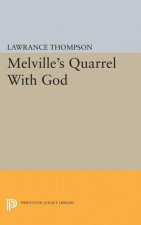
Melville's Quarrel With God
79.94 € -

British Trade Unions, 1707-1918, Part I, Volume 1
230.89 € -

Fourth Grade Common Core Workbook: English Activities: Volume 1 of 2
73.01 € -2 % -

Official Guide to the Most Beautiful Villages of France
20.98 € -

Best Boring Book Ever of Select Healthcare Classification Sy
31.93 € -2 % -

Barth Handbuch
54.33 € -

Kompetenzoperatoren und W-Fragen im Vergleich. Chemie- und Philosophieunterricht im Praxissemester
34.44 € -6 % -

Ein Blatt Liebe
9.03 € -2 % -

Adéla hledá ideál
5.61 € -20 % -

Websites & Sightseeing
63.57 € -

Rechtsruck in Griechenland? Die Ursachen und Ergebnisse der Europawahl 2014
42.98 € -6 % -

Muslimové a jejich svět
13.05 € -26 % -

Gesunder Buchsbaum
10.13 € -10 % -

Überwindung des Schweigens
25.40 € -5 % -

Formen Und Krafte in Der Lebendigen Natur
63.57 € -

KOMPASS Wanderkarte Isarwinkel - Bad Tölz - Lenggries
19.17 €
Give this book as a present today
- Order book and choose Gift Order.
- We will send you book gift voucher at once. You can give it out to anyone.
- Book will be send to donee, nothing more to care about.
More about Multicriteria Optimization in Engineering and in the Sciences
You get 446 loyalty points
 Book synopsis
Book synopsis
We are rarely asked to. make decisions based on only one criterion; most often, decisions are based on several usually confticting, criteria. In nature, if the design of a system evolves to some final, optimal state, then it must include a balance for the interaction of the system with its surroundings certainly a design based on a variety of criteria. Furthermore, the diversity of nature's designs suggests an infinity of such optimal states. In another sense, decisions simultaneously optimize a finite number of criteria, while there is usually an infinity of optimal solutions. Multicriteria optimization provides the mathematical framework to accommodate these demands. Multicriteria optimization has its roots in mathematical economics, in particular, in consumer economics as considered by Edgeworth and Pareto. The critical question in an exchange economy concerns the "equilibrium point" at which each of N consumers has achieved the best possible deal for hirnself or herself. Ultimately, this is a collective decision in which any further gain by one consumer can occur only at the expense of at least one other consumer. Such an equilibrium concept was first introduced by Edgeworth in 1881 in his book on mathematical psychics. Today, such an optimum is variously called "Pareto optimum" (after the Italian-French welfare economist who continued and expanded Edgeworth's work), "effi. cient," "nondominated," and so on.
 Book details
Book details
Book category Books in English Mathematics & science Mathematics Optimization
177.16 €
- Full title: Multicriteria Optimization in Engineering and in the Sciences
- Author: Wolfram Stadler
- Language:
 English
English - Binding: Paperback
- Number of pages: 406
- EAN: 9781489937360
- ISBN: 1489937366
- ID: 02644029
- Publisher: Springer-Verlag New York Inc.
- Weight: 640 g
- Dimensions: 235 × 155 × 23 mm
- Date of publishing: 09. January 2014
Trending among others
-
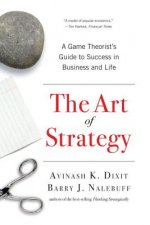
Art of Strategy
17.67 € -11 % -
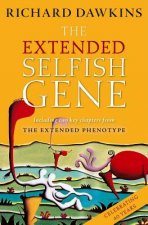
Extended Selfish Gene
23.69 € -21 % -
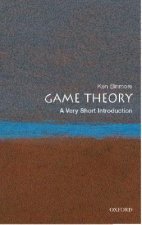
Game Theory: A Very Short Introduction
9.23 € -28 % -

Beautiful Mind
15.26 € -25 % -

Nonzero
13.25 € -28 % -
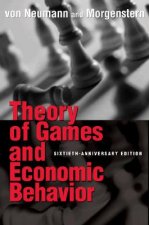
Theory of Games and Economic Behavior
82.85 € -

Game Theory in Action
48.90 € -

Introduction to Modern Time Series Analysis
73.91 € -
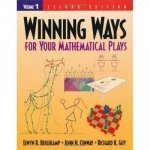
Winning Ways for Your Mathematical Plays
85.76 € -4 % -

Mathematics for Computer Science
48.20 € -1 % -

Game Theory
72.30 € -
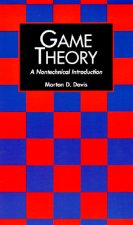
Game Theory
12.85 € -18 % -

Prisoner's Dilemma
15.26 € -15 % -
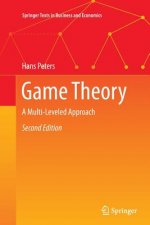
Game Theory
68.69 € -
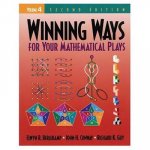
Winning Ways for Your Mathematical Plays, Volume 4
80.74 € -1 % -
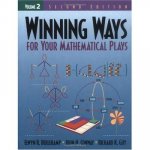
Winning Ways for Your Mathematical Plays, Volume 2
77.83 € -5 % -

Mathematical Games and How to Play Them
9.23 € -23 % -
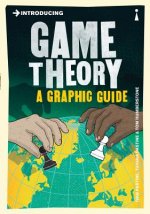
Introducing Game Theory
10.54 € -18 % -
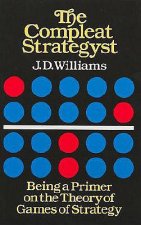
Compleat Strategyst
9.93 € -17 % -
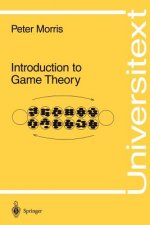
Introduction to Game Theory
84.26 € -

Choice Theory: A Very Short Introduction
9.23 € -28 % -
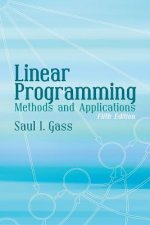
Linear Programming
25.90 € -15 % -

Nature-Inspired Optimization Algorithms
116.60 € -
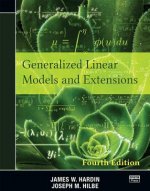
Generalized Linear Models and Extensions
96.21 € -
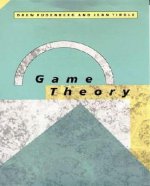
Game Theory
139.50 € -

Co-Opetition
11.24 € -28 % -
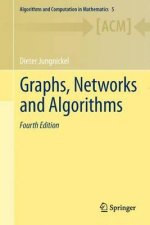
Graphs, Networks and Algorithms
115.19 € -

Mathematics for Computer Science
40.47 € -1 % -
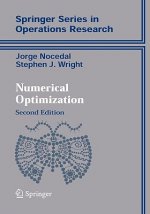
Numerical Optimization
89.88 € -

Games and Decisions
23.59 € -23 % -

Forecasting with Exponential Smoothing
166.82 € -

Claims Reserving in General Insurance
99.72 € -

Metaheuristics - From Design to Implementation
155.97 € -1 % -

Essential John Nash
42.37 € -4 % -

Calculus on Normed Vector Spaces
73.91 € -

Linear Programming: An Introduction to Finite Improvement Algorithms
31.53 € -9 % -
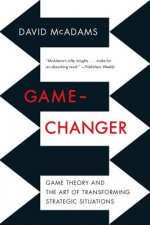
Game-Changer
19.47 € -18 % -

Agent-Based Models in Economics
40.37 € -
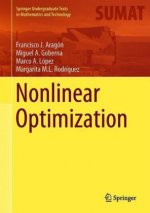
Nonlinear Optimization
69.09 € -4 % -
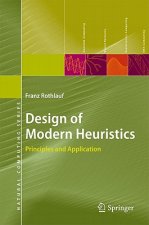
Design of Modern Heuristics
89.38 € -
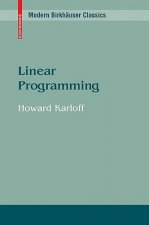
Linear Programming
53.32 € -

Vehicle Routing
143.11 € -

Linear Programming with MATLAB
69.89 € -

Von Neumann, Morgenstern, and the Creation of Game Theory
48.60 € -
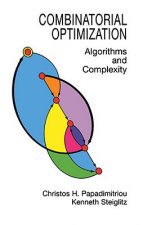
Combinatorial Optimization
28.61 € -18 % -

Essential Mathematics for Games and Interactive Applications
152.75 € -

Gladiators, Pirates and Games of Trust
11.64 € -18 % -
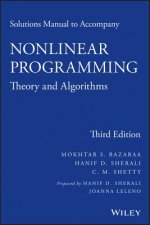
Solutions Manual to Accompany Nonlinear Programming - Theory and Algorithms, Third Edition
44.18 € -

Games, Strategies, and Decision Making
121.72 €
Collection points Bratislava a 2642 dalších
Copyright ©2008-24 najlacnejsie-knihy.sk All rights reservedPrivacyCookies


 15549 collection points
15549 collection points Delivery 2.99 €
Delivery 2.99 € 02/210 210 99 (8-15.30h)
02/210 210 99 (8-15.30h)